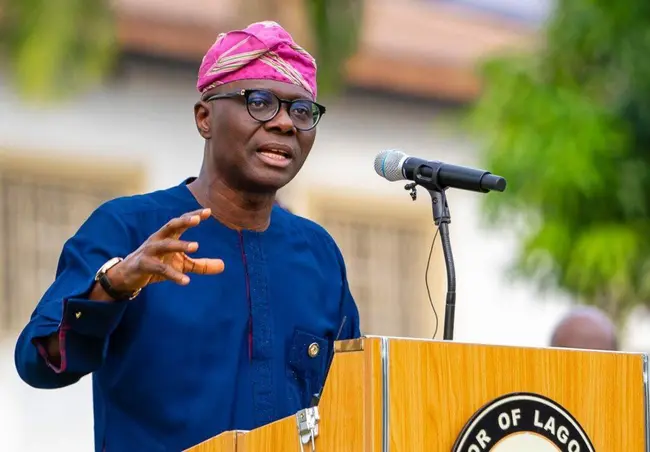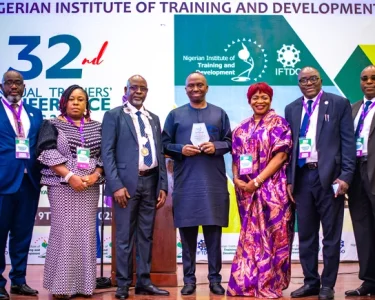The Lagos State Government said it will require an investment of 14 billion dollars to 33 billion dollars to meet its energy generation needs by 2030.
Mr Kamaldeen Balogun, General Manager of the Lagos State Electricity Board, disclosed this at the 15th Ralph Alabi Memorial Lecture and Induction of new corporate members of the Nigerian Society of Engineers (NSE) Ikeja Chapter.
The theme of the event is, “Opportunities in Emerging Power Sector: A Panacea for Economic Stability and Industrialisation”.
Balogun, an engineer, while delivering a keynote address at the event, said that the figure was obtained from the Lagos Bureau of Statistics. According to him, energy supply is currently Lagos State’s single biggest infrastructure and developmental challenge.
He also said that the state receives only 1,000 megawatts daily for average of 12 hours, against the required 9,000 megawatts.
The general manager noted that this was in the light of the 2023 Electricity Act, which gave powers to the states to generate, transmit and distribute energy within their jurisdiction.
“Lagos State is poised to ensure adequate and reliable power supply to its citizens through the Lagos Electricity Market.
Balogun explained that Lagos power sector offers opportunities in Independent Power Plants, renewable energy, especially solar, off-grid and mini-grid solutions for underserved areas, and energy storage systems to improve reliability.
He stated that the gas-to-power projects and smart grid technologies also present lucrative investments, expanding distribution networks, adding that public-private partnerships would further drive growth.
Balogun said that emerging sectors like electric vehicle infrastructure and waste-to-energy projects offer long-term potential.
“The power deficit in the state, the plans and target of the government create vast investment oportunities in the generation, transmision, distribution and retailing sectors of the power value chain.
“The Lagos Electricity Market Implementation Plan aims to enhance power generation and distribution by promoting private sector involvement and independent power producers (IPPs).
“This is to generate 3000MW of electricity to power Lagos State communities within the next 30 months,” he said.
According to him, the electricity market implementation plan focuses on grid modernisation, upgrading infrastructure with smart technologies to improve reliability and efficiency.
The plan encourages renewable energy integration of 1000Mw of power, emphasising solar and off-grid solutions to diversify the energy mix.
Balogun mentioned that public-private partnerships (PPPs) would be crucial for financing energy projects and expanding infrastructure.
He said: “It includes a strong focus on capacity building, ensuring workforce training for engineers, technicians, and craftsmen in the power sector.
“Several new agencies will be created to achieve the set target, namely, Lagos State Electricity Regulatory Commission, Lagos State Independent System Operators, Lagos Power Rangers and Lagos State Electrification Fund.”
In her remark, Mrs Margaret Oguntala, President/Chairman, Council of NSE, commended the Ikeja branch for sustaining the annual event held in honour of late illustrious Engineer Ralph Alabi, showcasing his legacy and professionalism in the engineering field.
Oguntala, represented by Dr Felicia Agubata, Vice President, Corporate Services, NSE, said through the annual event, the society ensured that Alabi’s contributions to national advancement was remembered and celebrated.
She said the theme for the lecture speaks directly to one of Nigeria’s most critical needs; stable and accessible power.
According to her, the power sector is a vital foundation upon which economic stability and industrialisation can be realised.
The president noted that the NSE remained firmly committed to promoting capacity building and continuous professional development for all its members.
In her welcome address, the Chairman, NSE Ikeja, Ms Nimot Muili, said the Lagos Power Bill offers a unique opportunity to remove the state from the constraints of the past and forge a brighter future.
Muili, also an engineer, said that the Nigerian government’s adoption of the Electricity Act 2023 empowers Lagos State to take control of its energy destiny, enabling it to generate, transmit, and distribute power, independently.
She said: “by harnessing the power of renewable energy sources, we can not only reduce our reliance on fossil fuels but also contribute to global efforts to combat climate change.
“This transition to a cleaner, greener future will not only benefit our environment but also create new jobs, stimulate economic growth, and improve the overall quality of life for our citizens.
“The Lagos Power Bill also opens the door to innovative public-private partnerships, fostering collaboration between government and industry.”
According to her, by leveraging the expertise and resources of the private sector, the state can accelerate the development of critical energy infrastructure, attract foreign investment, and ensure the efficient delivery of power to homes and businesses.
The chairman congratulated the inductees and encouraged them to be intentional about their membership, which offers numerous opportunities to advance both their professional and personal growths.




